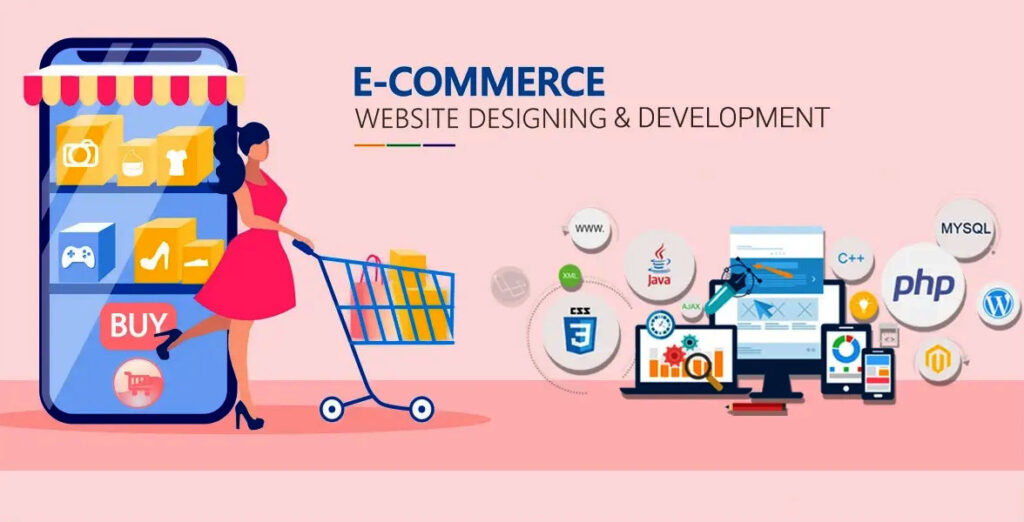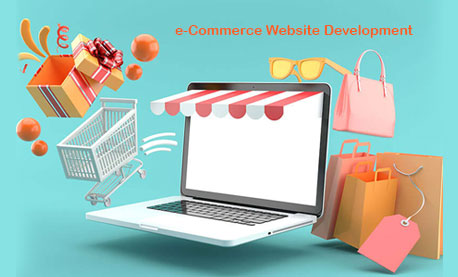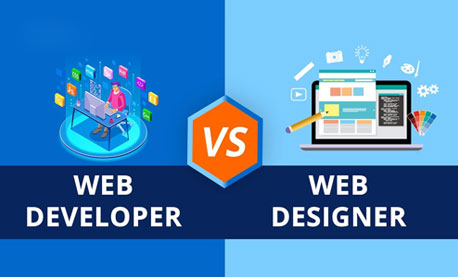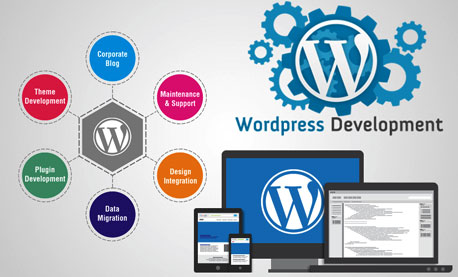e-Commerce Website Development: Building Your Online Success
Ecommerce website development refers to the process of creating an online platform where businesses can sell their products or services to customers. It involves designing, building, and optimizing a website that not only looks visually appealing but also functions seamlessly to provide a superior user experience. From small startups to established enterprises, businesses of all sizes can benefit from ecommerce website development to tap into the vast potential of the digital marketplace.

The Benefits of Ecommerce Website Development
- Expanded Market Reach
With an ecommerce website, you can reach a global audience and break free from geographical limitations. Your products or services can be accessed by customers from anywhere in the world, allowing you to expand your market reach and increase your sales potential.
- Enhanced Customer Convenience
By providing an online platform for customers to make purchases, ecommerce websites offer unparalleled convenience. Customers can browse through your products, compare prices, and make purchases at any time that suits them, without the need to visit a physical store. This convenience factor enhances customer satisfaction and encourages repeat business.
- Cost-Effectiveness
Compared to traditional brick-and-mortar stores, ecommerce websites offer significant cost savings. You eliminate the need for a physical storefront, reduce staffing requirements, and save on overhead expenses. This cost-effectiveness allows you to allocate more resources towards marketing, product development, and customer acquisition.
- Personalized Shopping Experience
Ecommerce websites have the advantage of leveraging customer data to provide personalized shopping experiences. By analyzing customer behavior and preferences, you can offer tailored product recommendations, personalized discounts, and a seamless shopping journey that enhances customer satisfaction and encourages loyalty.
- Analytics and Insights
With an ecommerce website, you gain access to a wealth of data and analytics. By tracking customer behavior, traffic sources, and conversion rates, you can gather valuable insights that can inform your marketing strategies, optimize your website, and make data-driven business decisions.

Ecommerce Website Development: Key Considerations
When embarking on ecommerce website development, there are several key considerations to keep in mind to ensure the success of your online venture. Let’s explore these considerations in detail.
- User Experience (UX) Design
Creating an exceptional user experience is paramount to the success of your ecommerce website. Your website should be visually appealing, easy to navigate, and provide intuitive interactions. By focusing on UX design, you can enhance customer satisfaction, reduce bounce rates, and drive conversions.
- Mobile Responsiveness
In today’s mobile-dominated landscape, ensuring that your ecommerce website is mobile-responsive is crucial. A responsive design ensures that your website adapts seamlessly to different screen sizes and devices, providing an optimal viewing experience for users. Mobile responsiveness is also a key ranking factor in search engine algorithms, improving your website’s visibility and organic traffic.
- Secure Payment Gateways
Building trust and instilling confidence in your customers is essential for successful ecommerce transactions. Integrating secure payment gateways, such as PayPal or Stripe, provides customers with a safe and secure environment to make online payments. Implementing SSL certificates and encryption protocols further enhances the security of your ecommerce website.
- Search Engine Optimization (SEO)
To attract organic traffic and increase your website’s visibility in search engine results, optimizing your ecommerce website for search engines is crucial. Conduct thorough keyword research and strategically incorporate relevant keywords throughout your website’s content, meta tags, headings, and product descriptions. Focus on creating high-quality and engaging content that resonates with your target audience, and build authoritative backlinks to boost your website’s domain authority.
- Streamlined Checkout Process
The checkout process is a critical stage in the customer journey. A streamlined and user-friendly checkout process reduces cart abandonment rates and improves conversion rates. Implement features such as guest checkout, multiple payment options, and progress indicators to simplify the checkout process and create a frictionless experience for your customers.

Key Features of Ecommerce Website Development
- Responsive Design: Ensuring a Seamless User Experience
A responsive design is an essential feature of ecommerce websites. With the increasing use of mobile devices, it is crucial to provide a seamless user experience across different screen sizes. A responsive design automatically adapts to the user’s device, optimizing the layout and functionality for improved readability and ease of navigation.
- Intuitive Navigation: Guiding Users to Their Desired Destination
Effective navigation is the backbone of any ecommerce website. Users should be able to find products effortlessly and navigate through categories and subcategories with ease. Intuitive navigation includes clear menus, search functionality, and breadcrumbs that enable users to understand their current location within the website’s hierarchy.
- Product Catalog Management: Organizing and Showcasing Products
A well-structured product catalog management system simplifies the process of organizing and showcasing products. It allows businesses to add, edit, and remove products easily, assign categories and attributes, and provide detailed descriptions and high-quality images. An organized product catalog enhances the user experience and facilitates efficient product discovery.
- Secure Payment Gateways: Building Trust and Ensuring Safety
Security is paramount in ecommerce transactions. Integrating secure payment gateways, such as PayPal or Stripe, provides customers with a secure environment to make online payments. Employing SSL certificates and encryption protocols further enhances the security of the website, building trust and instilling confidence in customers.
- Shopping Cart: Simplifying the Purchase Journey
The shopping cart feature enables customers to gather their desired products and proceed to checkout seamlessly. It should display product information, allow users to adjust quantities or remove items, and save cart contents for future visits. A user-friendly and efficient shopping cart experience reduces cart abandonment rates and encourages conversions.
- Streamlined Checkout Process: Enhancing Conversion Rates
A streamlined checkout process is crucial for maximizing conversions. Minimize the number of steps required to complete a purchase, offer guest checkout options, provide multiple payment methods, and display progress indicators to guide customers through the checkout journey smoothly. Simplifying the checkout process reduces friction and encourages customers to complete their transactions.
- Order Management: Efficiently Handling Orders
Efficient order management is vital for a successful ecommerce business. It involves features such as order tracking, shipment notifications, inventory management, and customer communication. Streamlining the order management process ensures timely order fulfillment, improves customer satisfaction, and fosters repeat business.
- Customer Accounts: Personalizing the Shopping Experience
Offering customer accounts adds value to the shopping experience. Customer accounts allow users to save addresses, track order history, and receive personalized recommendations based on their purchase history. By personalizing the shopping experience, businesses can foster customer loyalty and increase customer lifetime value.
- Ratings and Reviews: Building Trust and Influencing Purchasing Decisions
Integrating a ratings and reviews system enables customers to share their experiences and opinions about products. Genuine customer feedback builds trust, influences purchasing decisions, and provides valuable insights for potential buyers. Positive reviews and high ratings can significantly impact conversion rates and customer trust.
- Analytics and Reporting: Data-Driven Insights for Business Growth

Analytics and reporting tools provide valuable insights into customer behavior, sales trends, and website performance. By analyzing data, businesses can make data-driven decisions to optimize their ecommerce strategies. Tracking key metrics such as conversion rates, average order value, and customer acquisition cost helps businesses refine their marketing tactics and drive continuous growth.
FAQs about Ecommerce Website Development
What is the cost of ecommerce website development?
The cost of ecommerce website development can vary depending on various factors such as the complexity of the website, the number of products or services offered, and the features and functionalities required. It is recommended to consult with professional web developers or agencies to get accurate cost estimates based on your specific requirements.
How long does it take to develop an ecommerce website?
The timeline for ecommerce website development can vary depending on the scope and complexity of the project. Simple ecommerce websites can be developed within a few weeks, while more intricate websites with custom features may take several months. It is important to define clear timelines and milestones with your development team to ensure timely completion.
Can I update and manage my ecommerce website on my own?
Yes, modern ecommerce platforms provide user-friendly content management systems that allow website owners to easily update and manage their online stores. These systems typically offer intuitive interfaces, drag-and-drop functionality, and comprehensive documentation to help you make changes, add products, and track your website’s performance.
How can I drive traffic to my ecommerce website?
Driving traffic to your ecommerce website requires a multifaceted approach. Implementing effective SEO strategies, running targeted online advertising campaigns, leveraging social media platforms, and optimizing product listings are some of the key tactics to attract traffic. Additionally, content marketing, influencer partnerships, and email marketing can also help drive traffic and generate sales.
How can I optimize my ecommerce website for conversions?
Optimizing your ecommerce website for conversions involves several strategies. Some key elements include improving website loading speed, simplifying the checkout process, implementing trust signals and customer reviews, offering personalized product recommendations, and using persuasive call-to-action buttons. Conducting A/B testing and analyzing user behavior can provide valuable insights to further optimize your website for conversions.
Is it necessary to hire a professional web development agency for ecommerce website development?
While it is possible to create a basic ecommerce website using DIY website builders or pre-built templates, hiring a professional web development agency offers numerous advantages. They possess the expertise to create custom designs tailored to your brand, optimize your website for performance and SEO, ensure seamless integration of payment gateways, and provide ongoing technical support and maintenance.

Conclusion
Ecommerce website development is a crucial step for businesses seeking to establish a strong online presence and capitalize on the opportunities offered by the digital marketplace. By creating a visually appealing, user-friendly, and secure ecommerce website, you can attract customers, drive conversions, and achieve long-term success. Remember to prioritize user experience, optimize for search engines, and stay updated with the latest trends and technologies to stay ahead of the competition. Embrace the power of ecommerce website development and unlock the potential for online success. GCTL INFOSYS Provide Ecommerce website for any types of business purposes.






